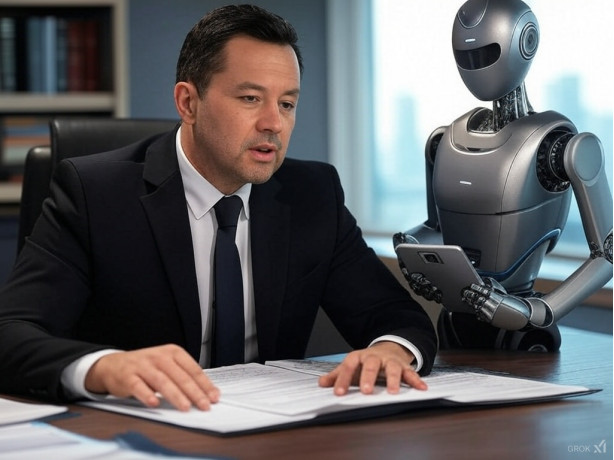What are neural network hallucinations and how are they dangerous for lawyers?
Neural network hallucinations are situations where AI generates false or unreliable information, passing it off as truthful. This can have disastrous consequences for lawyers.:
Errors in documents: The neural network may create a contract with incorrect terms or references to non-existent regulations.
Incorrect recommendations: The AI may suggest the wrong defense strategy in court or misinterpret the law.
Loss of customer trust: The use of false information can lead to legal losses and reputational risks.
The problem is that neural networks work like a "black box": their solutions are difficult to verify, and learning algorithms are not always transparent. This makes them unreliable tools in legal practice, where accuracy and reliability are critically important.
The alternative: algorithmic expert systems and business process navigators
Algorithmic expert systems created by lawyers using low-code platforms can be a way out of this situation. Unlike neural networks, such systems:
They are transparent: Their algorithms can be verified and adjusted.
They are reliable: They work on the basis of clear rules prescribed by lawyers.
Available: No programming knowledge is required to create them.
Low-code platforms allow lawyers to independently develop legal tech solutions for automating the work of lawyers, such as:
Document templates: Automated generation of contracts, statements of claim, and other legal documents.
Business Process Navigators: Step-by-step instructions for registering companies, completing transactions, or filing complaints.
Checklists and knowledge bases: Systems that help lawyers quickly find the information they need and avoid mistakes.
Economic effects of automation
The introduction of algorithmic expert systems and other programs for lawyers allows automation to achieve significant economic benefits.:
Reducing time costs: Automating routine processes such as drafting documents or checking counterparties allows lawyers to focus on more complex and strategically important tasks. This increases productivity and reduces project lead times.
Lower operating costs: The use of automated systems reduces the need to hire additional staff to perform routine work. For example, instead of hiring assistants to prepare standard contracts, lawyers can use templates created on low-code platforms.
Minimizing errors and related costs: Automation reduces the risk of human error, which can lead to financial losses or litigation. For example, business process navigators help to avoid mistakes when submitting documents to government agencies.
Increase profits through scaling: Automation allows lawyers and law firms to serve more clients without proportionally increasing costs. This is especially important for small companies that seek to compete with large players in the market.
Improving the quality of services: The use of algorithmic systems ensures a higher level of accuracy and consistency in work, which increases customer satisfaction and contributes to their retention.
Examples of using algorithmic systems
Solutions that demonstrate the effectiveness of this approach have already been implemented on the Botman.one platform.:
Automating the drafting of contracts: Lawyers have created templates with the ability to adapt to specific conditions, which speeds up the preparation of documents and minimizes the risks of errors.
Trial Navigator: A system that helps lawyers to properly prepare and submit documents to the court, taking into account all the procedural nuances.
Checklists for due diligence: Automated checklists that allow you to quickly check counterparties and identify potential risks.
Why is this the future of Legal Tech?
Algorithmic expert systems created by lawyers are not only a way to avoid the risks associated with neural network hallucinations, but also an opportunity to make the automation of a lawyer's workplace more controlled and secure.
In addition, such systems open up new career opportunities: legal ops vacancies appear, where specialists can develop and implement such solutions.
Conclusion
The use of neural networks in legal practice remains risky due to their unpredictability. However, algorithmic expert systems created using low-code platforms offer a reliable alternative. They not only automate the lawyer's work, but also make it more transparent and controlled, while bringing significant economic benefits.
If you would like to learn more about how to implement such solutions in your practice, visit the Botman.one website and see examples of successful cases. The Legal Tech of the future is technologies that work for you, not against you.
